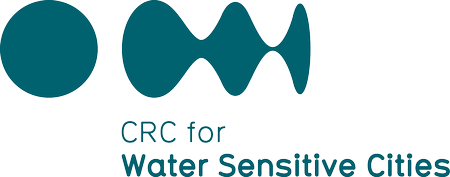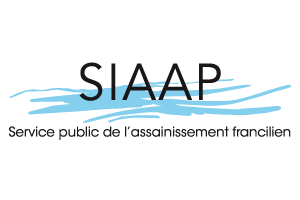Towards Water-Wise Cities
Cities are rapidly expanding and water resources are under increasing pressure. We need to find ways to do more with less, while ensuring that cities are resilient to floods, droughts and the challenges of growing water scarcity. Transitioning cities to address these challenges has never been more urgent. The journey towards water-wise cities begins here…
The 17 IWA Principles for Water-Wise Cities
The IWA Principles help city leaders ensure that everyone in their cities has access to safe water and sanitation. One of the aims is to ensure that water is integrated in planning and design in cities to provide increased resilience to climate change, livability, efficiencies, and a sense of place for urban communities.
The ultimate goal of these Principles is to encourage collaborative action,underpinned by a shared vision, so that local governments, urban professionals, and individuals actively engage in addressing and finding solutions for managing all waters of the city.
The 17 Principles are grouped into four categories:
Replenish Waterbodies and Their Ecosystems
REPLENISH waterbodies and their ecosystems within the basin by taking from or discharging to them only what can be given or absorbed by the natural environment.
Reduce water intakes to match quantities that the natural environment is able to renew, and protect the quality of water sources from wastewater and urban run-off so that it is fit for ecosystems and for use with minimal treatment requirements.
Reduce the Amount of Water and Energy Used
REDUCE the amount of water and energy used.
Minimise the amount of water used in accordance with storage capacities.
Minimise the energy used in moving and treating urban waters, including rainwater.
Reuse, Recover, Recycle
REUSE and use diverse sources of water with treatment that matches the use, applying the “fit for purpose” water quality approach and Integrated Water Resources Management (IWRM5);
RECOVER energy from water whether through heat, organic energy or hydraulic energy;
RECYCLE and recognise the value of “upcycled” materials, such as nutrients or organic matter.
Use a Systemic Approach Integrated with Other Services
Use a SYSTEMIC APPROACH integrated with other urban services.
Consider the different parts of a water system and other services such as waste or energy as a whole, to enable solutions that reduce and reuse while improving services costs efficiently.
Increase The Modularity of Systems and Ensure Multiple Options
INCREASE THE MODULARITY and ensure there are multiple resource, treatment, storage and conveyance options available throughout the system for ensuring service levels and resilience of urban water systems in the face of either gradual or sudden changes.
Enable Regenerative Water Services
PLAN AND IMPLEMENT URBAN DESIGN ENABLING REGENERATIVE WATER SERVICES.
Design domestic and industrial precincts and buildings in ways that enables regenerative water services. This reduces the water, energy and carbon footprint of housing, contributing to its affordability through lower monthly bills.
It also leads to cleaner waterways, benefiting ecosystems and people, while also improving social and urban amenities. It includes building green infrastructure to capture and treat stormwater for a range of co-benefits.
Design Urban Spaces to Reduce Flood Risks
DESIGN URBAN SPACES TO REDUCE FLOOD RISKS. Increase resilience to flood risks by developing urban drainage solutions, integrated with urban infrastructure design so that safe flooding spaces are provided and the city acts as a “sponge”, limiting surges and releasing rainwater as a resource.
Plan vital infrastructure to enable quick disaster recovery
Enhance Liveability With Visible Water
ENHANCE LIVEABILITY WITH VISIBLE WATER from roadside green infrastructure to major blue-green corridors as opportunities for recreation, inclusive public space, economic development and transportation, creating multi-purpose spaces and infrastructure.
Urban water services are essential for ensuring sustainable irrigation of parks and gardens, providing shade and mitigation of heat islands.
Modify and Adapt Urban Materials to Minimise Environmental Impact
MODIFY AND ADAPT URBAN MATERIALS TO MINIMISE THEIR IMPACT ON WATER POLLUTION:
The urban materials of roofs, walls, surfaces, roads, and urban furniture ought to be carefully selected to prevent the release of pollutants when exposed to sun and rain.
Plan to Secure Water Resources and Mitigate Drought
SECURE THE WATER RESOURCE and plan for drought mitigation strategies by sharing the water resource with other users in the basin, namely agriculture, industry and energy sectors, and other cities who all contribute to the basin’s and city’s economy.
Protect the Quality of Water Resources
PROTECT THE QUALITY of the water resource together with the other basin stakeholders, to ensure high quality drinking water achieved with minimal treatment and energy requirements, and ecosystems services (e.g. forest catchment areas, wetlands).
Prepare for Extreme Events
PREPARE FOR EXTREME EVENTS, such as storms and heavy rains, by managing flow regimes in rivers, by maintaining adequate vegetation in the basin to minimise flash floods.
Invest in coastal storm risks mitigation and flood warning systems.
Empowered Citizens
CITIZENS involved in the sustainable urban water vision.
Water wise citizens can drive urban planning and design with their understanding of the risks (flooding, scarcity) and opportunities (resource recovery, reducing dependency on uncertain future resources, increased well-being). Water wise citizens will also adapt their behaviour.
They will develop their acceptance to solutions, enabling regenerative water services, and their willingness to pay for such services while mandating their officials to ensure affordability.
Professionals Aware of Water Co-Benefits
PROFESSIONALS WITH VARIOUS EXPERTISE (FINANCE, TECHNICAL, SOCIAL) who understand the co-benefits across urban sectors so that they may plan and implement the best solutions for urban dwellers and businesses.
Synergies and dependencies exist between water and urban planning, architecture, landscaping, and energy, waste and transport services: water services require energy but conversely urban water can be used to produce energy locally; green urban space requires water that can be provided by collecting rainwater or reusing water from treated effluent to recycle nutrients in vegetated areas.
Professionals, realising the market and non-market value of the co-benefits associated to an integrated urban agenda, will enable innovative sustainable solutions.
Transdisciplinary Planning Teams
TRANSDISCIPLINARY PLANNING AND OPERATION TEAMS integrating water in city planning. All waters (freshwater supply, rain, rivers, seas and wastewater) are interconnected with each other and other urban systems (parks, roads, energy and waste) so that efficiencies and synergies arise from a coordinated approach.
A city planning organisation recognising these inter-relations and bridging over existing individual departments is needed to enable urban professionals to implement sustainable urban water.
Policy Makers Enabling Water Wise Action
POLICY MAKERS enable the implementation of the Principles for regenerative water services, water sensitive urban design, and basin-connected cities. Water wise policy makers establish policies and financing mechanisms (tariffs, partnerships, that are responsive and adaptive to future changes) to drive and enable sustainable urban water through incentivising and rewarding innovative solutions.
They phase out the existing subsidies and tax advantages that are environmentally harmful. They monitor, evaluate and adjust the policies based on future needs as they change over time.
Leaders that Engage and Engender Trust
LEADERS provide the progressive vision and a governance structure to coordinate work at 4 scales (catchment, metro, neighbourhood and building) and across disciplines.
The people governing at the national and local levels can enable sustainable urban water through coordination and integration, leveraging “effective and efficient governance enhancing trust and engagement”.
Why Endorse the Principles?
The Principles will be used to bring people together for resilient city planning and to guide the urban water revolution needed in cities of the future. By endorsing the principles on behalf of your city, your organisation or as a water professional, you are joining dozens in recognizing the importance of guiding the planning work for our future Water-Wise Cities. The time for action is now – Endorse the Principles!
See why change agents from around the world are endorsing the Principles for Water-Wise Cities…
Find more endorsements and join!
* Individual endorsements will be reflected upon further coordination
City Water Stories
Many cities around the world are adopting strategies to strengthen urban water resilience. Sharing best practices to empower others on their journey to water-wise cities is at the heart of these city stories. Although each city below tells a unique story of urban resilience, they all serve to illustrate how other cities can use these Principles to become Water-Wise Cities.
Roadmap
Since the launch in October 2016 at the IWA World Water Congress in Brisbane, 30 metropolitan areas worldwide have endorsed the IWA Principles for Water-Wise Cities, rallying urban stakeholders around a shared vision for sustainable urban water management. Building off of the Principles, IWA launched the Action Agenda for Basin-Connected Cities at the IWA World Water Congress in Tokyo, Japan in 2018.
The Water-Wise Cities initiative aims to foster Knowledge Exchange. The Principles are used to mainstream a “City Water Language” and structure case studies from cities to inspire change.
IWA aims to activate Actors of Change, by partnering with our members as champions who accelerate the transition to water-wise cities through their work and influence. The time to act is now. Join the journey to water wise cities.





